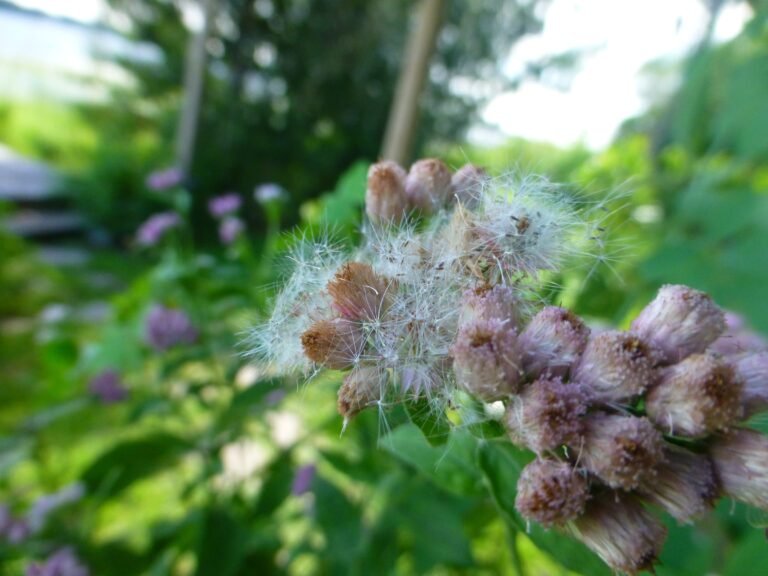
Pluchea odorata
(Marsh Fleabane)
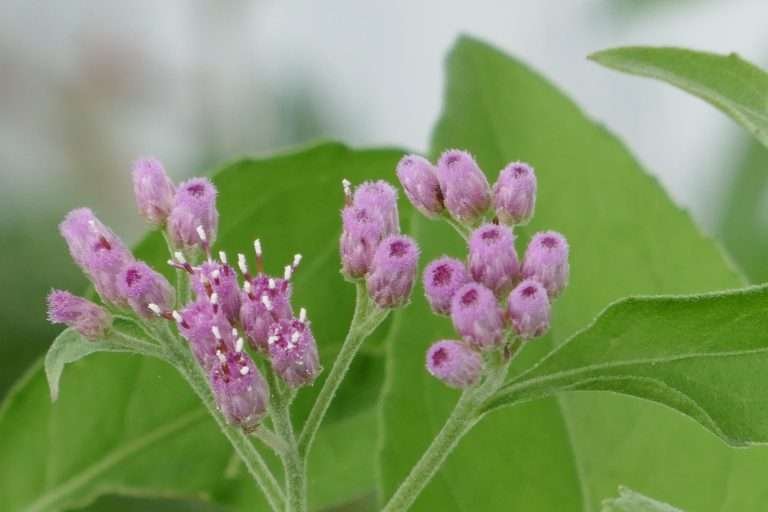
Common Names, Latin Name, and Family
Other common names include sweetscent and saltmarsh fleabane.
Its Latin name is Pluchea odorata previously known as Pluchea purpurascens.
Marsh fleabane is in the Asteraceae, or aster, Family.
Form
Marsh fleabane is a perennial wildflower that grows to a height of 3-6 feet.
Some literature states that it is an annual, but I’ve found it to come back from the roots in most instances.
It will certainly re-seed where the parent plant was grown and around the immediate area.
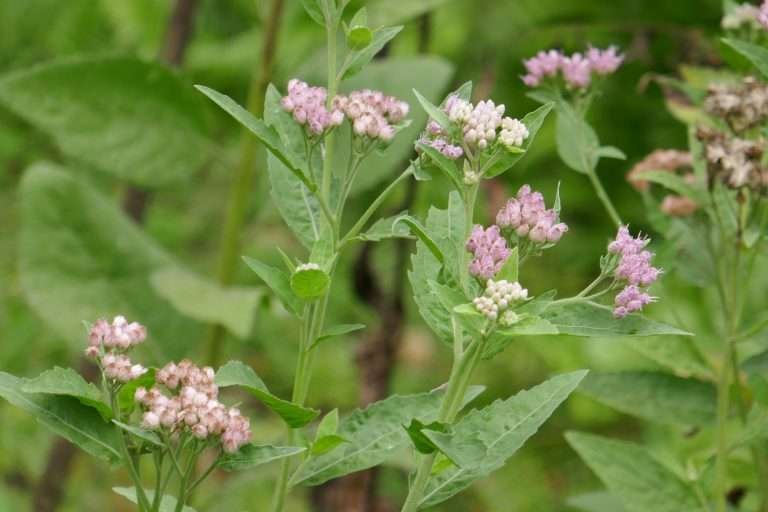
Leaves
The leaves are alternate with a short stalk.
Their shape is generally elliptic-ovate to lanceolate with toothed margins.
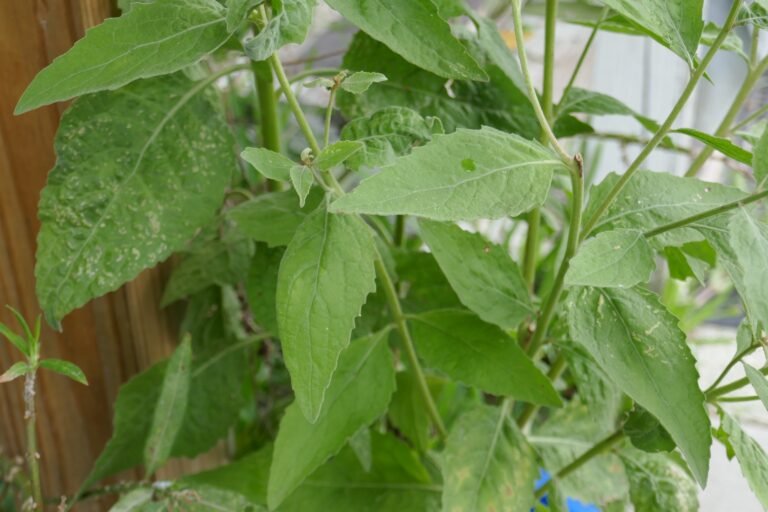
Flowers
The flowers appear all year except for the coldest part of our winter. The flower heads are tubular and don’t have petals. They are a pretty pale purple.
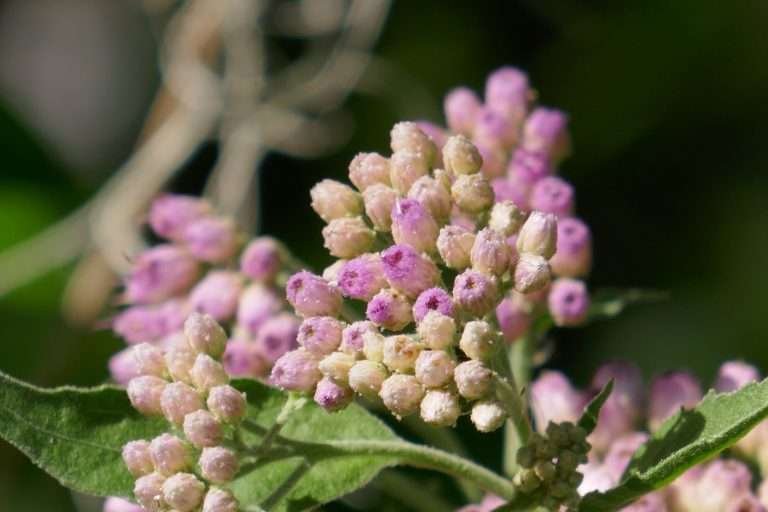
Habitat
Marsh fleabane grows in moist areas like wet woods, stream banks, lake margins and other wet areas such as drainage ditches and wet fence rows.
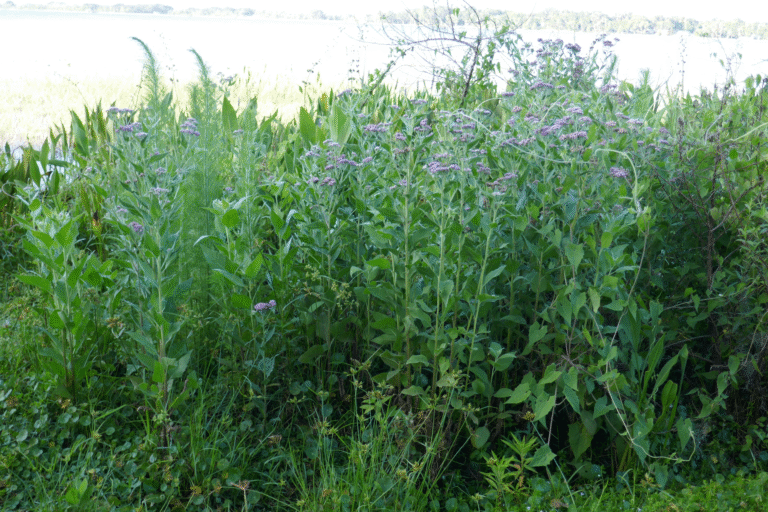
Native Range
Marsh fleabane is native to AL, AR, CT, FL, GA, IA, IL, KY, LA, MA, MD, MI, MO, MS, NC, NY, OH, SC, TN, TX, and WI.
It is found occurring naturally throughout the entire state of Florida except for a few counties in the extreme panhandle.
Landscape Use
In the home landscape it grows in full sun to part shade in moist to wet soils.
It can be used in a naturalized setting, grown in flower beds, and containers.
It transplants relatively well if kept moist once moved. When transplanting be sure to remove flower heads, or seed heads, so the plant can concentrate on recovering from the shock rather than keeping the flowers alive it needs to concentrate on its roots.
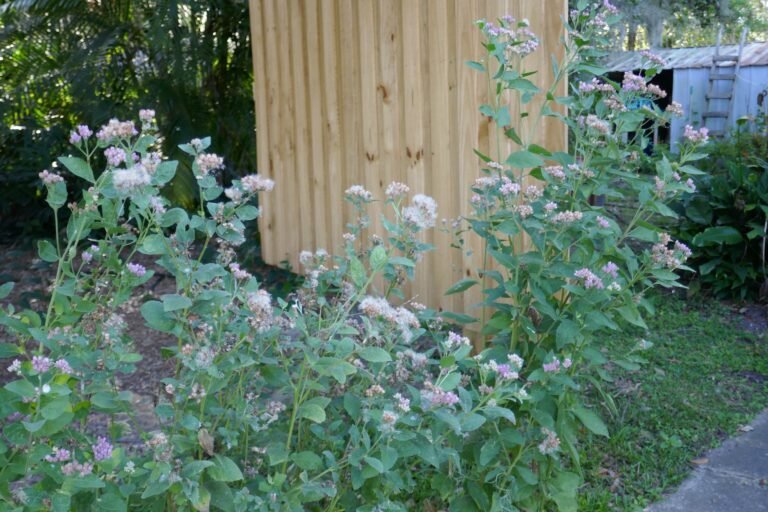
Wildlife Use
The flowers are a source of nectar for many insects including bees, beetles, butterflies, flies, and wasps.
In my green space it is a favorite of the small potter wasps, both the black and white and red and black. They nectar on it continually throughout the day.
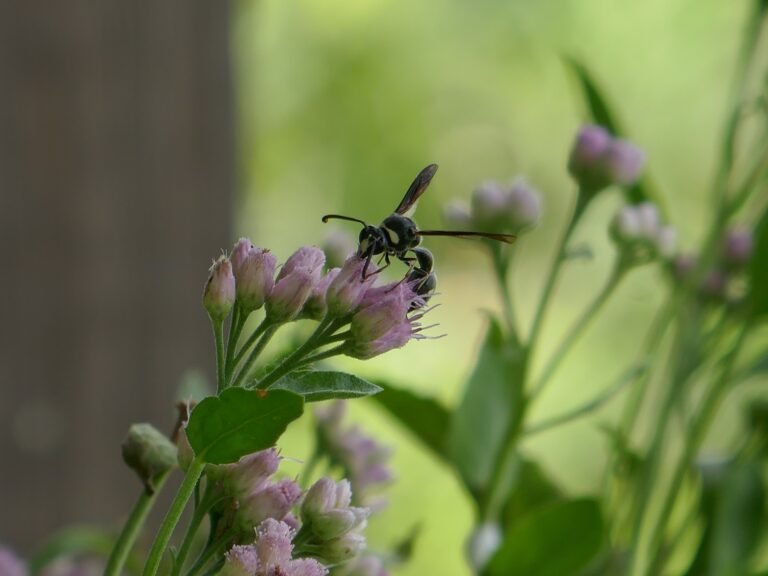
Propagation
Can be grown easily from seed, naturally occurring seedlings can be transplanted.
When transplanting be sure to remove flowers, and seed heads, so the plant can focus its resources on recovering from the shock and growing healthy roots. Keep it well watered until you see it is established.
